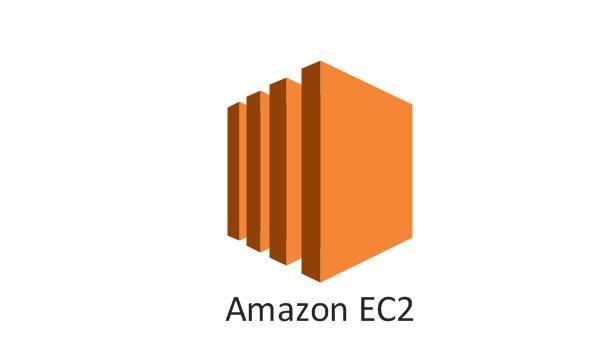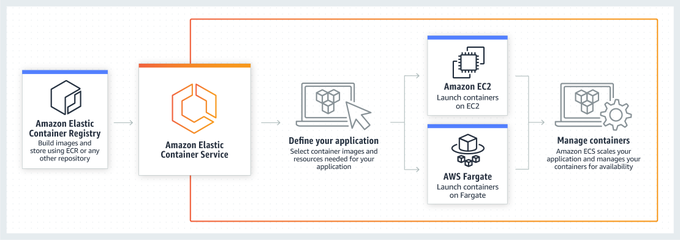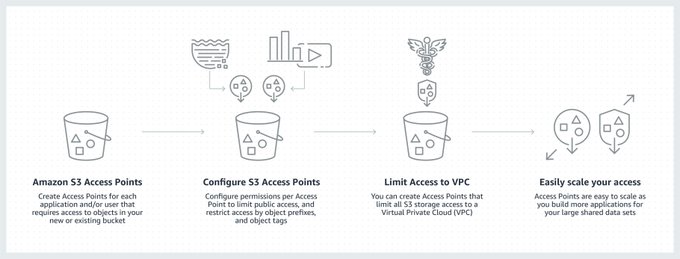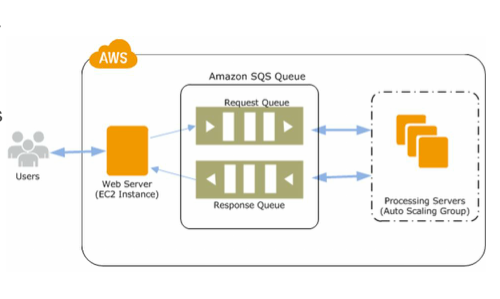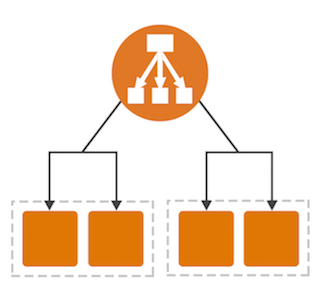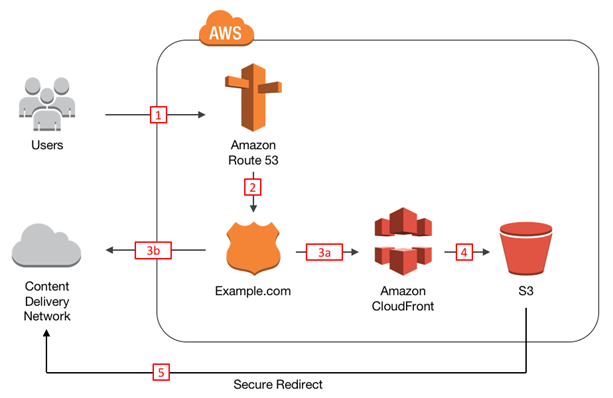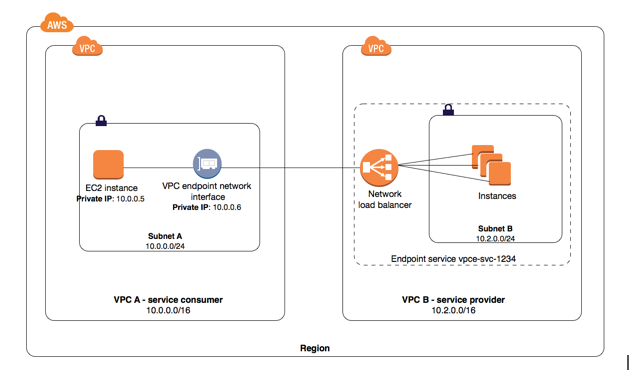Most commonly used AWS services:




1. Elastic Compute Cloud (EC2):
EC2 instances are basically servers with an operating system which can be used to run your applications on the internet just like you run your applications on your laptop during development.
EC2 instances are basically servers with an operating system which can be used to run your applications on the internet just like you run your applications on your laptop during development.
2. Relational Database Service (RDS):
RDS is a distributed relational database service.
Amazon RDS is available on several database instance types - optimised for memory, performance or I/O - and provides six familiar database engines to choose from, including:
RDS is a distributed relational database service.
Amazon RDS is available on several database instance types - optimised for memory, performance or I/O - and provides six familiar database engines to choose from, including:
3. Elastic Container Service (ECS):
AWS ECS is a fully managed container orchestration service.
ECS has been a foundational pillar for key Amazon services and it can natively integrate with other services such as Amazon Route 53, Secrets Manager, AWS Identity and
...
AWS ECS is a fully managed container orchestration service.
ECS has been a foundational pillar for key Amazon services and it can natively integrate with other services such as Amazon Route 53, Secrets Manager, AWS Identity and
...
...
Access Management (IAM), and Amazon CloudWatch providing you a familiar experience to deploy and scale your containers.
Access Management (IAM), and Amazon CloudWatch providing you a familiar experience to deploy and scale your containers.
4. ElastiCache:
Amazon ElastiCache works as a high throughput and low latency in-memory data store and cache to support the most demanding applications requiring sub-millisecond response times.
Amazon ElastiCache works as a high throughput and low latency in-memory data store and cache to support the most demanding applications requiring sub-millisecond response times.
5. Simple Storage Service (S3):
As the name suggests S3 provides low cost object storage service with high scalability, data availability, security and performance.
S3 can be used to store files for use cases like websites, mobile apps, enterprise apps, backup & restore etc.
As the name suggests S3 provides low cost object storage service with high scalability, data availability, security and performance.
S3 can be used to store files for use cases like websites, mobile apps, enterprise apps, backup & restore etc.
6. Simple Queuing Service (SQS):
SQS is a fully managed message queuing service that enables you to decouple and scale micro services independently. Using SQS you can send, store and receive messages between different components at any volume.
SQS is a fully managed message queuing service that enables you to decouple and scale micro services independently. Using SQS you can send, store and receive messages between different components at any volume.
This helps you to build highly scalable and distributed applications.
SQS offers two types of message queues:
- Standard Queues
- FIFO Queues
SQS offers two types of message queues:
- Standard Queues
- FIFO Queues
7. Load Balancer:
Load Balancer is a critical component in any distributed system which sits between a client and a server, accepts incoming requests, and routes them across a a cluster of servers to handle the load.
Load Balancer is a critical component in any distributed system which sits between a client and a server, accepts incoming requests, and routes them across a a cluster of servers to handle the load.
8. Route 53:
Route53 a highly available and scalable DNS service from AWS. If you don't know what a DNS service is, it's basically the service which routes end users to Internet applications by translating names into numeric IP addresses.
Route53 a highly available and scalable DNS service from AWS. If you don't know what a DNS service is, it's basically the service which routes end users to Internet applications by translating names into numeric IP addresses.
9. AWS Lambda:
AWS Lambda allows you to run your services without provisioning or managing servers. You only pay for the compute time used, whereas in EC2 instances which are up 24/7 you need to pay for that whole time for which these servers are up.
AWS Lambda allows you to run your services without provisioning or managing servers. You only pay for the compute time used, whereas in EC2 instances which are up 24/7 you need to pay for that whole time for which these servers are up.

 Read on Twitter
Read on Twitter